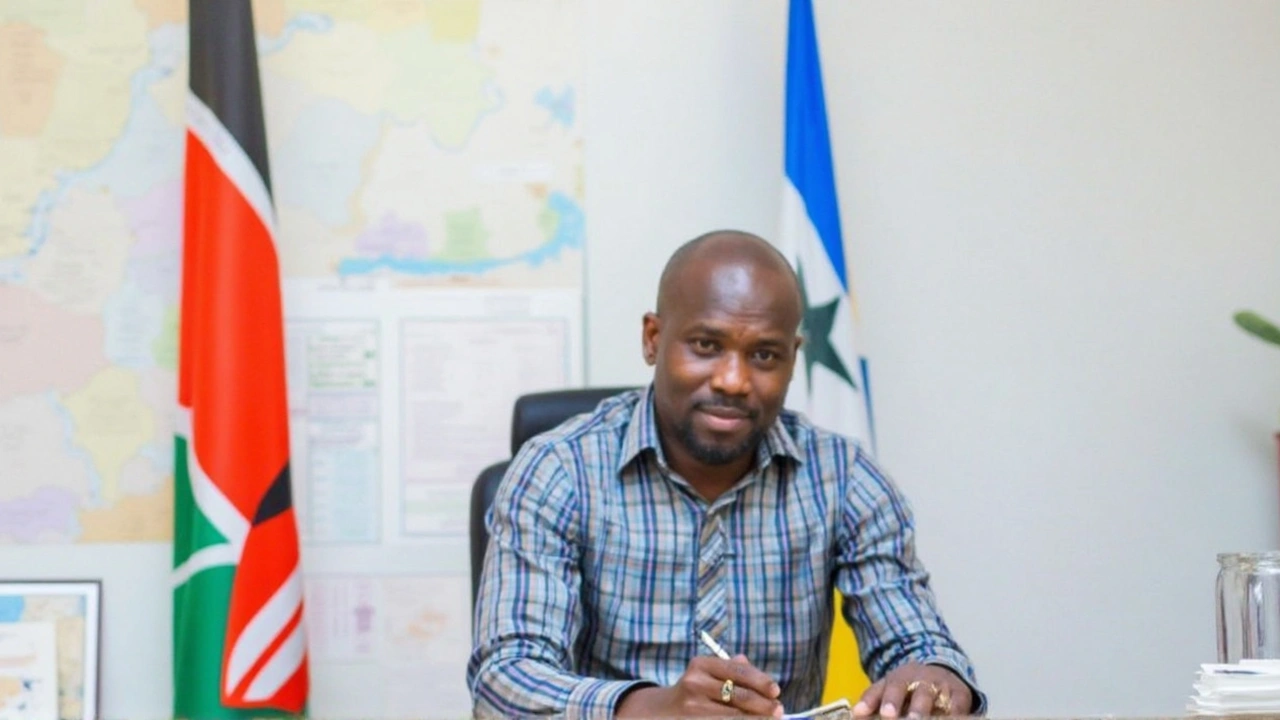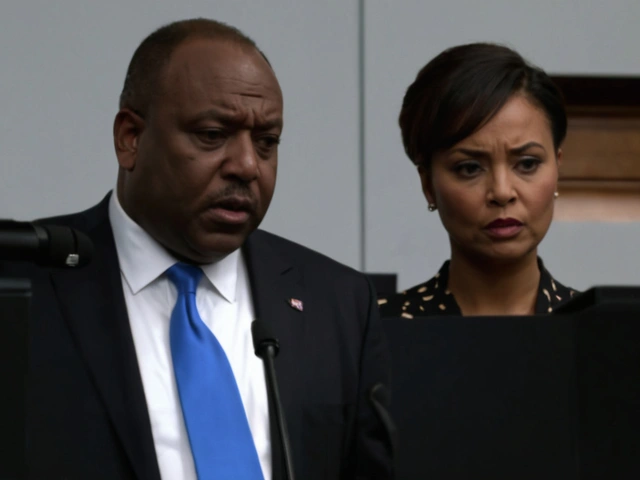Murkomen Puts Corrupt Officials on Notice in Kitui
Kenya’s Interior Cabinet Secretary Kipchumba Murkomen isn’t mincing words—he’s fed up with officials pocketing bribes or skirting the rules, and he’s determined to put an end to it. During a visit to Kitui as part of his tour of Lower Eastern Kenya, Murkomen delivered a tough message to local security and administrative officers: stop the graft or prepare to face the consequences. His frustration is clear, especially when he says, “Our main client is the Kenyan people and we will not allow this to be compromised.”
Murkomen’s speech pulled no punches and focused sharply on the National Government administration officers, the National Police Service, and National Police Reservists. He called out cases of human trafficking and the sneaky fees some officials demand for basic government services, like getting a national ID card. His stance? There’s no such thing as a minor offense—“Whether a thousand shillings or a billion, no crime is smaller than another.” For Murkomen, every act of corruption chips away at people’s trust in their government and steals opportunities from ordinary Kenyans.
He made it clear that positions won’t protect anyone. Chiefs, assistant chiefs, Assistant County Commissioners (ACCs), Deputy County Commissioners (DCCs), and officers at every level are now under the microscope. Murkomen pointed to recent high-profile arrests—governors, Cabinet Secretaries, and Principal Secretaries have all faced graft charges—and promised this crackdown won’t stop at the lower ranks.
Big Push for Community Action and Accountability
The Interior CS didn’t just point fingers at officials—he also called on ordinary Kenyans to get involved. Communities, Murkomen insists, are essential in exposing corrupt dealings and helping bring guilty officials to justice. “Report corruption wherever you see it,” he urged, laying out his plan to work with the Public Service Commission to temporarily remove implicated officers from duty. Those facing charges would then have to defend themselves in court while the government looks for new, trustworthy replacements.
Murkomen’s tough talk fits with President William Ruto’s push for efficient government and honest public service. Since taking office, Ruto’s administration has emphasized cleaning up state agencies, promising Kenyans a government that actually delivers without expecting a secret payment in return. Oversight teams are ramping up investigations, and Murkomen wants them to keep digging and pulling back the curtain on corrupt deals.
What’s really different this time is the seriousness at the top. From small bribes for administrative favors to organized schemes trafficking people across the border, the government wants Kenyans to know no crime is too small for attention—and no one is too important to answer for their actions. If Murkomen’s words translate to action, some familiar faces in government offices might not keep their jobs much longer.









11 Comments
Thank you for sharing this update I appreciate the clear stance taken by the minister and encourage all officials to uphold integrity
Great read! It’s encouraging to see a leader actually calling out the bad apples in the system. This kind of transparency can really empower citizens to speak up :) Keep the momentum going!
Oh, wonderful! Another politician promising the moon while we’re still stuck on the potholes. It’s almost theatrical how they pretend to care about the ‘ordinary Kenyan’ while the same old corruption dramas continue. Bravo for the speeches, not the results.
Another day, another empty promise from the powers that be.
One must contemplate the philosophical ramifications of an administration that vocally condemns corruption yet historically tumbles into the very abyss it decries; the dichotomy is a study in human hypocrisy, a paradox that riddles the annals of governance. The act of publicly shaming officials, while commendable, may merely serve as a performative gesture if not buttressed by systemic overhaul, thereby rendering the proclamation hollow. Moreover, the emphasis on community involvement is laudable, for grassroots vigilance often precedes institutional reform, but it also places an undue burden on citizens to police their own leaders. The precedent set by high‑profile arrests could herald a new era of accountability, yet without transparent judicial proceedings, the spectacle could devolve into selective persecution. In the realm of public administration, consistency is the cornerstone of legitimacy, and wavering enforcement erodes trust faster than any monetary graft. Hence, the declaration that “no crime is too small” must be matched with equitable prosecutorial zeal across all strata of power. If the Ministry of Interior dispatches inspectors with genuine intent, the ripple effects may cascade into other ministries, fostering a culture of zero tolerance. Conversely, if the crackdown is merely a political tool to placate dissent, it may soon be forgotten, and the entrenched networks of patronage will resurface. The interplay between political will and bureaucratic inertia is complex, demanding not only rhetoric but concrete policy instruments such as whistleblower protection statutes and autonomous oversight bodies. Additionally, the temporary removal of implicated officers is a procedural step, but the criteria for reinstatement must be rigorously defined to prevent recycled corruption. The populace, eager for transparency, should demand regular public reports on progress, lest the initiative become a fleeting headline. Ultimately, the success of this anti‑corruption crusade hinges on sustained vigilance, institutional safeguards, and an unwavering commitment to the rule of law, lest the promises dissolve into the same old narrative of unfulfilled reform.
While the verbosity above attempts to sound profound, the reality remains that such grandiloquent speeches seldom translate into tangible change. The elite tend to mask their continued complicity behind a veneer of reformist rhetoric, and the colorfully crafted promises become nothing more than smoke‑filled theatrics.
Esteemed readers, permit me to declare with the gravest solemnity that the very fabric of governance is being rewoven before our eyes! The minister’s proclamation resonates like a thunderclap across the valleys of Kitui, heralding an era where no malefactor shall escape the scrutinizing gaze of justice. Such decisive articulation is a testament to the indomitable spirit of leadership, a clarion call that shall echo through the corridors of power.
I appreciate the passion in the previous comment and hope that the focus remains on constructive steps forward. Engaging communities responsibly and ensuring due process can foster lasting reform without alienating those we aim to help.
Nice overview, looking forward to real results.
While the optimism is refreshing, one must also consider that such initiatives often falter under bureaucratic inertia. It would be prudent to maintain a cautious outlook and monitor the implementation closely.
Honestly, the entire narrative reeks of superficiality, a mere façade designed to placate a populace hungry for accountability! If we truly desire transformation, we must dismantle the very structures that perpetuate corruption, not merely adorn them with glossy press releases, nor should we rely on sporadic arrests, which are but fleeting gestures in a system entrenched with moral decay.